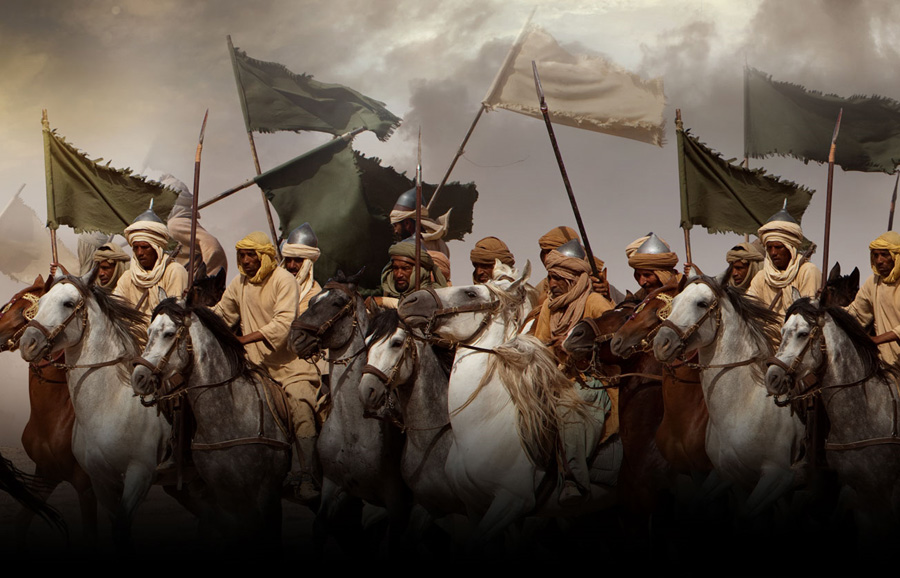The Rashidun Caliphate: The Golden Age of Islamic Expansion
Introduction
The Rashidun Caliphate, also known as the Rightly Guided Caliphate, is regarded as a crucial period in Islamic history. Spanning from 632 to 661 CE, it marked the reign of the first four caliphs following the death of Prophet Muhammad. This era witnessed remarkable achievements in governance, military conquests, legal developments, and cultural advancements. Let's delve into the fascinating story of the Rashidun Caliphate and its lasting impact on the Islamic world.
The Succession of the Caliphs
The Rashidun Caliphate began with the leadership of Abu Bakr, the close companion and father-in-law of Prophet Muhammad. His reign was marked by establishing stability, suppressing rebellions, and launching military campaigns to secure the Arabian Peninsula. Upon his death, Umar Ibn Al-Khattab succeeded him, expanding the empire by conquering vast territories, including Persia and Egypt. Uthman Ibn Affan followed, known for his administrative reforms and compilation of the Quran. Lastly, Ali Ibn Abi Talib took the helm, facing challenges such as the Battle of the Camel and the Battle of Siffin.
Military Conquests and Expansion
The Rashidun Caliphs led a series of remarkable military expeditions, propelling the rapid expansion of the Islamic empire. The most significant conquests include the capture of Jerusalem, Damascus, and the Sassanian Empire. Under the leadership of Khalid ibn Al-Walid, the Muslim army emerged victorious in numerous battles against powerful opponents. The conquests not only expanded the Islamic territories but also spread the religion of Islam to new lands, facilitating its rapid growth.
Administrative and Legal Reforms
The Rashidun Caliphs were known for their just and efficient governance. They established a decentralized administrative system, relying on the principle of consultation (Shura) and the guidance of Islamic law (Sharia). Caliph Umar introduced reforms such as the Bayt al-Mal (public treasury) and a standardized coinage system. Uthman implemented administrative divisions, known as provinces, to facilitate effective governance. The caliphs also developed a legal framework and established courts to ensure justice and maintain social order.
Cultural and Intellectual Contributions
The Rashidun Caliphate was a flourishing era for Islamic culture and intellectual pursuits. The House of Wisdom (Bayt al-Hikmah) was established in Baghdad, becoming a renowned center for translation, preservation, and dissemination of knowledge from various civilizations. Scholars from different backgrounds contributed to advancements in science, mathematics, medicine, and philosophy. The caliphs patronized scholars, fostering an environment conducive to learning and innovation.
Legacy and Impact
The Rashidun Caliphate played a pivotal role in shaping the future of the Islamic world. Its military successes and administrative reforms laid the foundation for the subsequent empires that emerged, such as the Umayyad and Abbasid Caliphates. The legal system developed during this period formed the basis for Islamic jurisprudence. The cultural and intellectual contributions of the era influenced the fields of arts, sciences, and literature for centuries to come, leaving an indelible mark on Islamic civilization.
Further Contributions
The Rashidun Caliphs' leadership exemplified the principles of humility, piety, and selflessness. They prioritized the welfare of their subjects, fostering a sense of unity and social cohesion within the empire. The caliphs were accessible to the people, ensuring that their grievances were heard and addressed. Their emphasis on justice and fair governance earned them respect and loyalty from the Muslim community.
Despite the immense achievements of the Rashidun Caliphate, it faced internal divisions and challenges, particularly during the reign of the fourth caliph, Ali. The events surrounding the Battle of the Camel and the Battle of Siffin led to divisions among the Muslims, eventually leading to the formation of the Sunni and Shia branches of Islam. However, the foundations laid during the Rashidun era provided the resilience necessary to navigate these challenges and preserve the core values of Islam.
The Rashidun Caliphate serves as a source of inspiration for Muslims seeking to understand and embody the principles of good governance, justice, and unity. The emphasis on consultation (Shura) and the inclusion of diverse voices in decision-making processes remain significant lessons in contemporary times. The administrative and legal reforms implemented by the caliphs set precedents for effective governance and laid the groundwork for future Islamic empires.
Moreover, the Rashidun Caliphs' military campaigns and conquests demonstrated the ability of a united Muslim force to overcome seemingly insurmountable challenges. The victories in battles against powerful empires like the Byzantines and the Persians expanded the influence of Islam and facilitated the spread of its teachings. The spirit of resilience, bravery, and unity displayed during these conquests continues to inspire Muslims today.
The cultural and intellectual contributions of the Rashidun Caliphate left an enduring impact on the Islamic world. The House of Wisdom in Baghdad became a symbol of intellectual curiosity and knowledge acquisition. It became a hub for scholars, translators, and scientists from various backgrounds, fostering an environment of learning and exchange. The works of Muslim scholars during this era preserved and translated ancient Greek, Roman, and Persian texts, thereby contributing to the preservation and advancement of knowledge.
In conclusion, the Rashidun Caliphate represents a significant period in Islamic history, characterized by visionary leadership, military triumphs, administrative reforms, and cultural advancements. The caliphs' adherence to justice, consultation, and the pursuit of knowledge left an indelible mark on the Islamic world. The lessons learned from this golden age continue to shape the values and aspirations of Muslims worldwide, reminding them of the potential for greatness that lies within the Islamic tradition. The Rashidun Caliphate will forever be revered as a time of excellence and enlightenment in the annals of Islamic civilization.










0 Comments